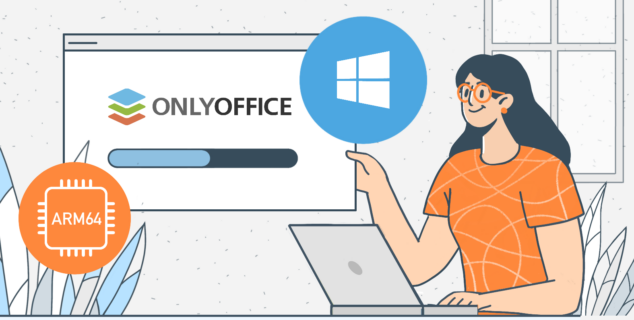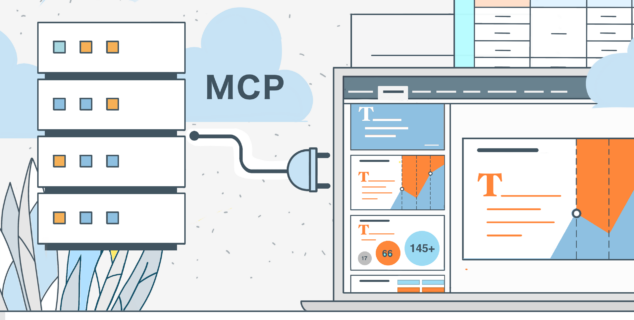Data Privacy Day: a brief guide
Data Privacy Day is celebrated annually on January 28. It serves as a global reminder to people and organizations about the importance of protecting sensitive information. Read on to learn more about the day, its history, the importance of data privacy, and how to celebrate Data Privacy Day and strengthen digital security.

What is Data Privacy Day, and what is its aim?
Data Privacy Day or Data Protection Day is celebrated annually on January 28. It is an international event dedicated to raising awareness of the importance of privacy and data protection and promoting responsible handling of personal information. The day is an opportunity for individuals, businesses, and organizations to reflect on the importance of protecting sensitive data and participate in activities to raise awareness of privacy.
Data Privacy Day aims to create a more privacy-aware society, reduce the risks of data breaches and identity theft, and promote a global digital ecosystem where privacy is respected and protected. It provides an annual opportunity for people and organizations to reflect on their digital habits, adopt best practices, and actively participate in the ongoing discussion about the importance of data privacy in our digital world.

How it all started?
The history of Data Protection Day has its origins in Europe. On January 28, 1981, the Council of Europe signed the Convention for the Protection of Individuals about Automatic Processing of Personal Data. It was the first legally binding international treaty relating to privacy and data protection.
Initiated by the Council of Europe, the Day was first celebrated in 2007 as European Protection Day. Its purpose was to raise awareness of data protection issues and promote privacy and responsible data management practices. Two years later, the United States joined the initiative.
Finally, in 2011 January 28 was recognized as International Data Protection Day.
Who celebrates Data Privacy Day and how?
Since 2011, Data Privacy Day has been celebrated around the world, with various organizations, businesses, government agencies, and individuals engaging in events and initiatives to promote best practices for handling personal information.
Businesses and organizations take the opportunity to educate their employees about data privacy policies, stressing the importance of securing customer information and handling data responsibly through training sessions. Some organizations use the day to conduct privacy audits, revisiting and updating their data protection policies and procedures to ensure they align with the latest standards.
Additionally, businesses may publicly declare their commitment to maintaining high data privacy standards. Making public commitments, they aim to reinforce trust with their customers and demonstrate their dedication to safeguarding sensitive information.
Government agencies overseeing data protection launch public awareness campaigns, disseminating information on privacy rights, regulations, and best practices. Some public authorities use Data Protection Day to promote new policies or initiatives to strengthen data protection and privacy laws.

Privacy advocacy groups and non-profit organizations organize events, webinars, and workshops to educate the public on digital rights and privacy concerns.
Schools, colleges, and universities host workshops and seminars, educating students and staff on the significance of privacy in the digital age.
What is recommended for everyone to do on this day?

On an individual level, you can take steps to protect your data. Here is a checklist you can check annually on Data Protection Day to make sure your data is protected.
1. Update passwords
- Change passwords for important accounts such as email, banking, and social media.
- Use strong, unique passwords for each account, and don’t use the same password for all accounts.
- For added security, use a strong password manager.
2. Review privacy settings
- Check and customize privacy settings on social media platforms.
- Check app permissions on your devices and revoke unnecessary access.
- Ensure that only necessary information is visible to the public.
- Limit the personal information you share on social media.
3. Enable two-factor authentication (2FA)
- Activate 2FA on accounts that support it for an extra layer of security.
- Use authentication apps or physical security keys for 2FA when possible.
4. Update software and apps
- Ensure that your operating system, antivirus software, and apps are up-to-date.
- Enable automatic updates where available.
5. Review connected devices
- Check and remove any devices connected to your accounts that you no longer use or recognize.
- Secure your smart home devices with strong passwords and regular updates.
6. Data backup
- Back up important data and files regularly.
- Verify that your backup system is working effectively.
7. Check for account activity
- Review recent account activity on critical platforms.
- Report any suspicious or unrecognized activities promptly.
8. Clean up digital clutter
- Delete old accounts and apps you no longer use.
- Remove unnecessary personal information from online profiles.
9. Secure Wi-Fi networks
- Update your Wi-Fi router’s password regularly.
- Ensure WPA3 encryption for stronger wireless security.
10. Consider a VPN
- Explore using a secure Virtual Private Network (VPN) for added online privacy, especially when using public Wi-Fi.
11. Stay informed
- Stay updated on the latest cybersecurity threats and best practices.
- Participate in online privacy discussions and communities.
Don’t forget about your elder relatives and children as well, help them to understand these measures or set up their devices.
By regularly going through this checklist on Data Privacy Day, individual users can take steps to strengthen their digital defenses, maintain control over their personal information, and contribute to a safer online environment.
Why is Data Privacy Day a great reason to get to know ONLYOFFICE?
Data Privacy Day provides an opportunity to explore and consider tools and platforms that prioritize data security and privacy. Let’s use the ONLYOFFICE example to see what features you should pay attention to if you want to keep your data secure.
ONLYOFFICE Docs is an open-source collaborative office suite that includes editors for text documents, spreadsheets, presentations, forms, and PDF files. It offers a range of data security tools to provide users with a secure document editing experience.

Compliance with data protection regulations
ONLYOFFICE complies with the General Data Protection Regulation (GDPR), the European Union’s comprehensive data protection and privacy regulation. This commitment to GDPR standards ensures that user data is handled responsibly and by stringent privacy regulations.
What’s more, ONLYOFFICE is fully compliant with HIPAA requirements requiring any organization providing treatment, payment, and operations in healthcare, as well as their business associates and subcontractors who have access to any of their data assets, to protect sensitive patient data according to a set of recognized standards.
Open source
ONLYOFFICE affirms its transparency and reliability by opening the source code of all functional modules and tools. This transparency also promotes trust and accountability, as users can see how the software works and what it does with their data.
Self-hosted version
ONLYOFFICE provides on-premises deployment that allows organizations to take full control of their data. It is especially crucial for those who operate with sensitive information.
Data encryption
ONLYOFFICE uses the industry-leading AES-256 encryption standard to protect your sensitive data at rest. Data is protected in transit by the use of HTTPS protocols with up-to-date TLS encryption algorithms. This feature is crucial for protecting sensitive documents and information from unauthorized access.
JWT
JSON Web Token (or JWT) protects documents from unauthorized access. This technology ensures that users cannot access more data than permitted to them, which is critical in the case of external user invitations.
Document password protection
You can protect documents with a password manually to make sure no one can access your files without receiving a password from you. The documents are protected with an AES-256 encryption algorithm and can be opened in any editor that supports password protection.
Document permission management
ONLYOFFICE Docs allow you to create a flexible set of document access rights types, including full access, view-only, comment, review, or form-filling rights. In addition, you can restrict the downloading, printing, and copying of documents to block further distribution of content.
Digital signatures
Applying digital signatures to documents helps confirm their integrity and authenticity. In ONLYOFFICE Docs, you can use any certificates to add signatures to documents, request signatures from one or multiple parties, and customize the signature layout and appearance.
Access control and audit trail
ONLYOFFICE DocSpace is a secure document collaboration software with open-source code. It combines powerful editors for text documents, spreadsheets, presentations, forms, and PDF files, collaborative tools, and storage space. ONLYOFFICE DocSpace is designed to enable collaboration both within the team and with third parties like partners, customers, and providers.
It provides the same security features and offers additional features to ensure protected and seamless document sharing online:
- Requirements for minimal password length or mandatory characters
- Two-factor authentication (2FA)
- Using trusted mail domains
- IP security
- Administrator message setting
- Limiting the session lifetime
- Login history
- Audit trail
Consult the complete security checklist for ONLYOFFICE DocSpace or watch the video:
Collaborate on your text documents, spreadsheets, presentations, and forms and store them in a secure space with ONLYOFFICE:
START ONLINE INSTALL ON-PREMISES
Conclusion
Data Privacy Day serves as a reminder for individuals and organizations to be proactive in safeguarding sensitive information, fostering a culture of privacy, and respecting the digital rights of all users.
Create your free ONLYOFFICE account
View, edit and collaborate on docs, sheets, slides, forms, and PDF files online.


